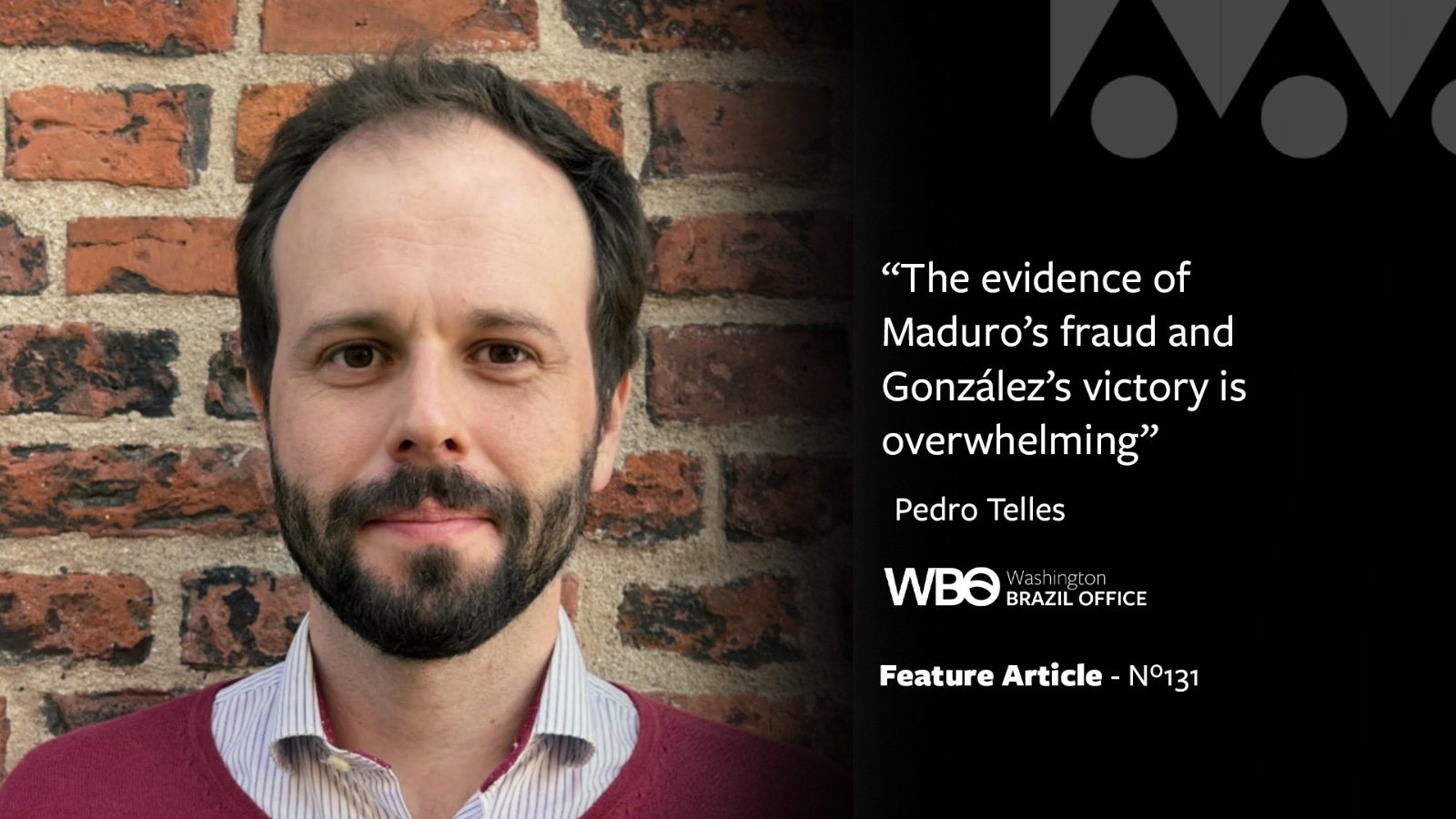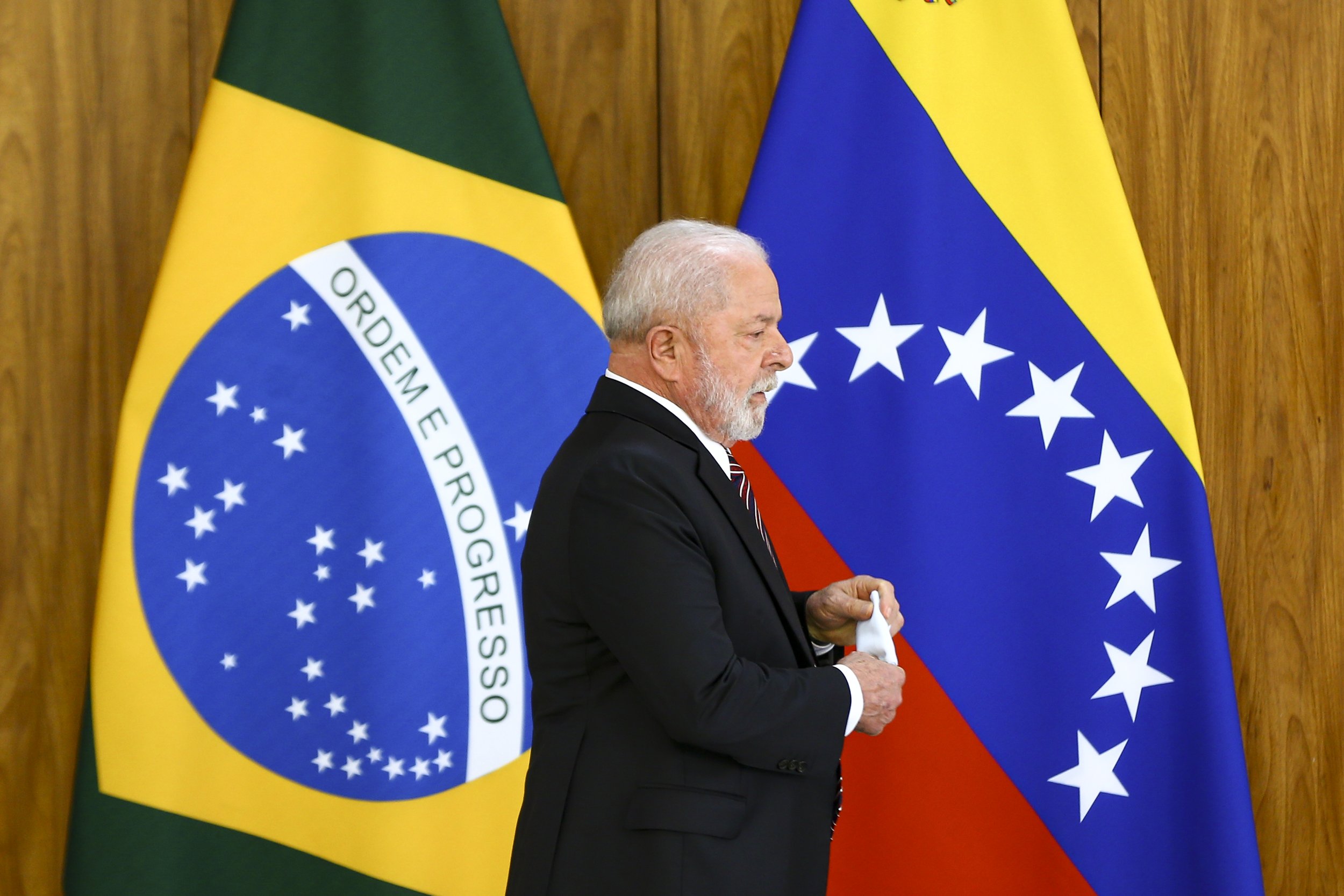Venezuela and the Crossroads of Democracy
Pedro Telles is Director of Programs at Democracy Hub (D-Hub), Professor of Advocacy and Social Change at the School of International Relations of Fundação Getulio Vargas, and Senior Fellow for Social and Economic Equity at the London School of Economics and Political Science. This article was written for issue 131 of the WBO weekly newsletter on August 23, 2024. To subscribe to the bulletin and receive it for free, enter your email in the field below.
While Nicolás Maduro is hiding the results of the presidential election held on July 28, ignoring repeated calls from dozens of governments to present the data in a format that allows the results to be verified, the evidence of a large victory for his opponent Edmundo González is overwhelming.
The AltaVista Parallel Vote Tabulation, an independent initiative by Venezuelan civil society to estimate the election results endorsed by renowned academics, indicates that González received 66 percent of the vote, compared to 31 percent for Maduro – based on verifiable and statistically representative data collected from ballot boxes in hundreds of polling stations throughout the country.
This result is in line with what is indicated by copies of 83 percent of the electoral records made publicly available by the opposition, recently validated in an independent study by Walter Mebane, a researcher specializing in detecting electoral fraud, who in 2019 confirmed Evo Morales’ victory in Bolivia using a similar methodology. The numbers are also confirmed by analyses of the Associated Press, the Washington Post and the Colombian civil society platform Electoral Observation Mission, and match the exit poll by Edison Research.
The situation places the Brazilian government, as well as civil society organizations and movements that work on the defense of democracy, at a crossroads: whether or not to recognize González’s victory, despite Maduro insisting (contrary to the evidence) that he was victorious? In what way, and in what time frame?
For the government, the situation is not simple. History shows us that successful solutions to situations like Venezuela's are usually negotiated carefully, leading the authoritarian leader in question and/or important allies to accept a transition in power in exchange for guarantees. It is no coincidence that we have gestures such as Colombia proposing an amnesty for Maduro, and Panama offering him asylum to facilitate a democratic transition.
To play the important mediation role that it has assumed in the face of the crisis, and for which it is internationally recognized, the Brazilian government needs to walk a tightrope: on the one hand, indicate that it does not believe Maduro's claims of victory; on the other, maintain open channels of dialogue with the regime to advance negotiations, which requires thoughtful public positions. While other governments on the left and right in the region have already adopted a more forceful discourse, Brazil is trying to lead Maduro into accepting defeat.
However, there is no way to sit on the fence forever. Despite stating that Brazil will not recognize Maduro's victory without the presentation of the results, President Lula and Celso Amorim avoid setting a deadline for this. However, through action (explicit recognition of the existence of electoral fraud and González's victory or explicit validation of Maduro's speech) or through omission (continuing the relationship with the Maduro government without a definitive position on the election), the government will take a position.
The political reality of Venezuela imposes a deadline that is impossible to escape: the end of the current presidential term, on January 9, 2025. By then, a position will be consolidated. And from now until then, the tendency is for violence, repression of protests, and other severe human rights violations to continue escalating, an issue that the Brazilian government still avoids facing head on.
While the diplomatic context makes the situation complex for the government, the reality is quite different for civil society organizations and movements that work on the defense of democracy. There is no room for doubt: the evidence of Maduro’s fraud and González’s victory is overwhelming, as is the evidence of serious crimes and abuses committed by the current regime to remain in power.
Even those who defend the political project of Chavismo have made it clear that Maduro no longer represents it. A group of former ministers of Hugo Chávez and other important figures of the Venezuelan left recently published an open letter repudiating Maduro’s conduct and asking the governments of Brazil, Mexico and Colombia to intercede on behalf of the Venezuelan people. Pepe Mujica, the former president of Uruguay, who defined Chávez in 2014 as “a great friend” who had “extremely supportive gestures” and “left a void that is very difficult to fill,” was categorical about Maduro earlier this year: “You can call him a dictator.
In addition to being an ethical imperative, Brazilian civil society’s condemnation of Maduro also serves a strategic purpose: to provide the Lula government with reasons and arguments to sustain the careful pressure it has been exerting on the regime in its diplomatic efforts, and the gradual increase in tone it has been adopting in recent weeks.
And both governments and civil society need to keep in mind that this is not an isolated crisis. Authoritarianism is on the rise all over the world, and this can be clearly seen in Latin America. In addition to Maduro in Venezuela, among the most recent movements we have Ortega and Bukele consolidating their positions in Nicaragua and El Salvador, Milei maintaining his popularity in Argentina, and Kast promoting extremism in Chile, in addition to Bolsonarism still thriving in Brazil. This authoritarian wave will only be stopped with firm and coordinated responses from democratic forces.


